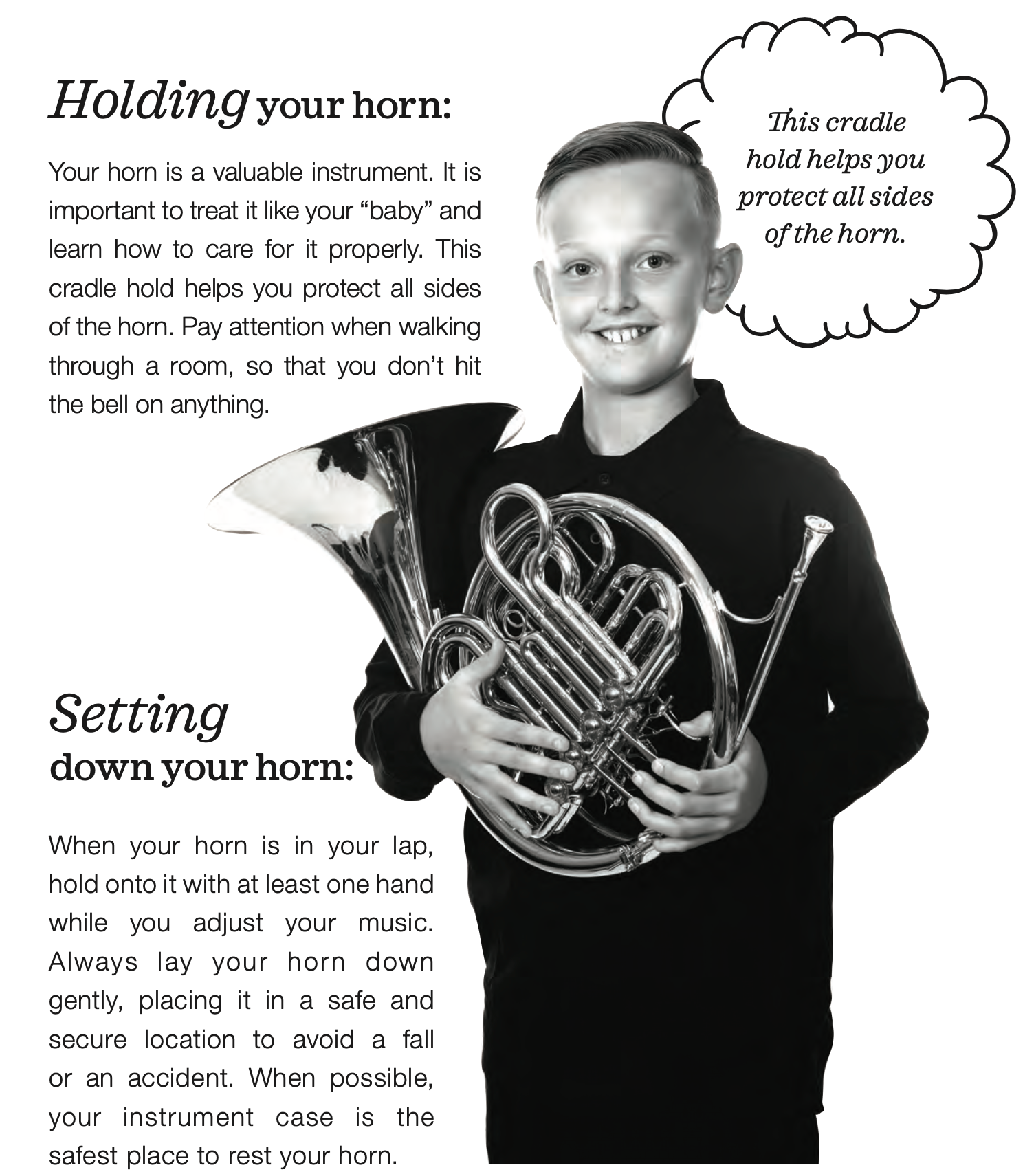How to treat your horn

Emptying water from your horn:
As you play, condensation will collect in all of the bends and curves of the horn, making it difficult to play. Each horn is unique in how to best empty the water, but here are a few guidelines: First, hold the body of the horn like a steering wheel, and turn it to the right, placing the bell on your lap. Second, take out the main tuning slide and empty it. Other slides can be emptied one at a time as needed. Although all the slides will need to be emptied from time to time, water tends to collect most in the main tuning slide and the third valve slide(s). When emptying the first, second, or third valve slides, always depress the valve that coordinates with the slide before and after emptying it. It helps if you blow through the valve while the slide is removed to ensure you have emptied it completely.
Storing your horn:
Keep your case clear of loose objects that may damage your horn or get stuck in the bell. You don't want to feed your horn "junk food"!
Cleaning your horn:
The horn should be professionally cleaned once a year. In the meantime, you can remove your main tuning slide and run a cleaning snake with water through your leadpipe when needed.
Your mouthpiece should be cleaned with a mouthpiece brush and warm soapy water, especially after you have been sick.
Maintaining your horn:
When greasing the slides, they should be removed one at a time, cleaned, and dried completely before adding a small amount of slide grease to the end of the slide. Apply the grease evenly until the slide glides easily in and out of the horn. This should be done once a month, or as needed. Be careful not to overuse the grease. It can build up in the horn and cause problems.
Valve oil is needed to lubricate the metal surrounding the valve and keep it moving freely. Your valves should be oiled once a week or as needed. There are three places to oil each valve:
- Under the rotary valve cap
- Directly down the slide into the valve (Do not allow the oil to touch the slide, as it might dissolve the grease)
- On the post on the back of the valve
Chef's Note:
If your student has an older horn with noisy valves, put a heavy oil under the rotary cap and on the post. Brand new horns need lighter weight oils than older horns.
Source: Recipe for Success, Chapter 2, pages 10-12
